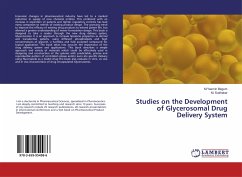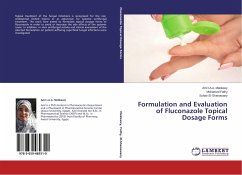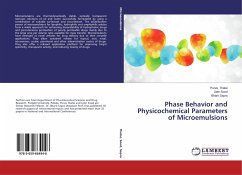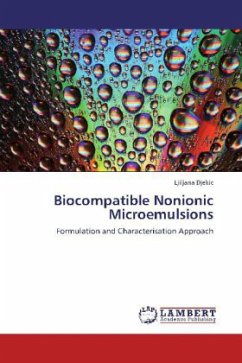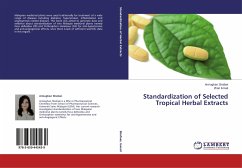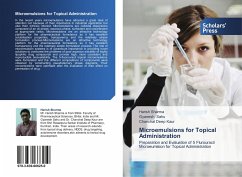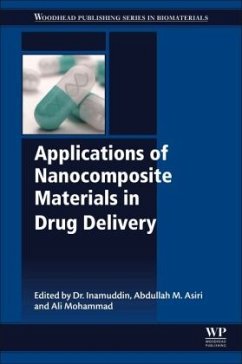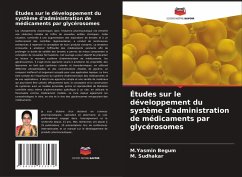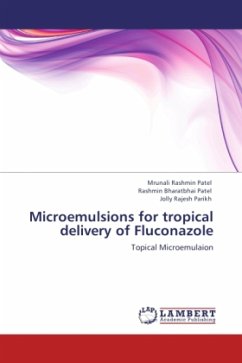
Microemulsions for tropical delivery of Fluconazole
Topical Microemulaion
Versandkostenfrei!
Versandfertig in 6-10 Tagen
45,99 €
inkl. MwSt.

PAYBACK Punkte
23 °P sammeln!
Microemulsions are potential drug delivery systems for several applications especially oral, nasal, topical and transdermal. They represent an ease to manufacture and are thermodynamically stable. The penetration enhancement from microemulsion is attributed to its high solubilizing capacity leading to an increase in drug concentration and providing a large concentration gradient from the vehicle to skin. Penetration enhancement from microemulsions is mainly due to an increase in drug concentration which provides a large concentration gradient from the vehicle to the skin. Furthermore it has be...
Microemulsions are potential drug delivery systems for several applications especially oral, nasal, topical and transdermal. They represent an ease to manufacture and are thermodynamically stable. The penetration enhancement from microemulsion is attributed to its high solubilizing capacity leading to an increase in drug concentration and providing a large concentration gradient from the vehicle to skin. Penetration enhancement from microemulsions is mainly due to an increase in drug concentration which provides a large concentration gradient from the vehicle to the skin. Furthermore it has been suggested that the surfactants and the oil from the microemulsion interact with the rigid lipid bilayer structure and acts as a chemical enhancer. Fluconazole, a recent synthetic triazole antifungal drug, is used for treatment of superficial and systemic fungal infections. In treatment of superficial and localized infections, topical application of antifungal agents seems to be first choice and the more convenient treatment. So in the present study an attempt has been made to develop a microemulsion formulation of Fluconazole that would enhance its penetration into skin by acting as a carr.



